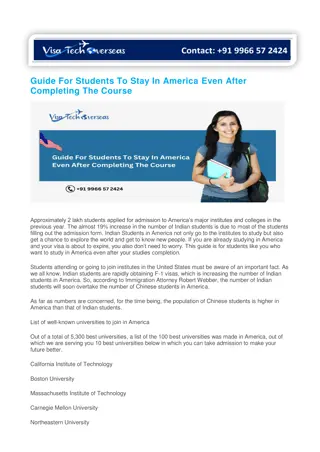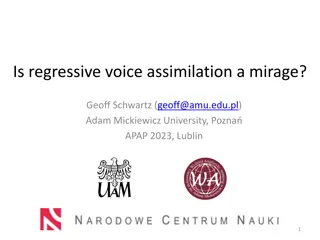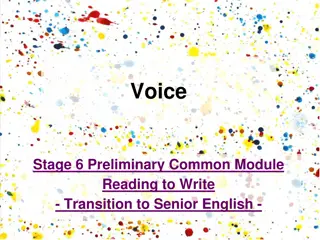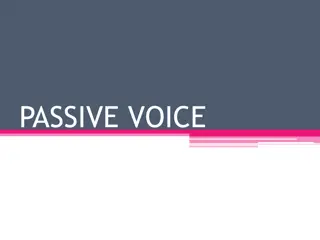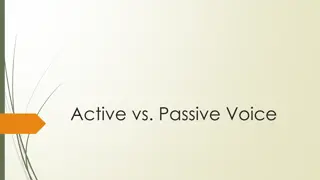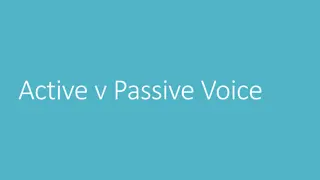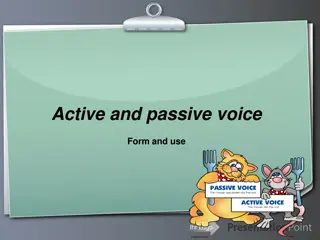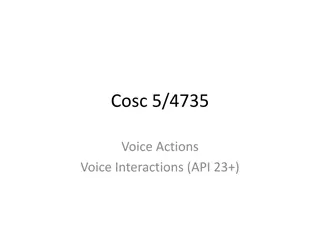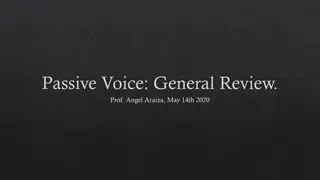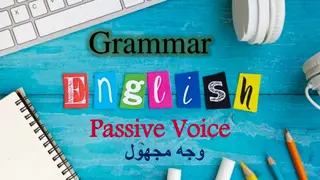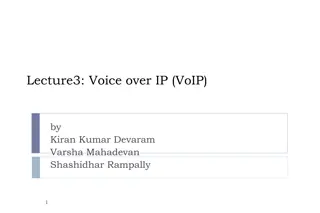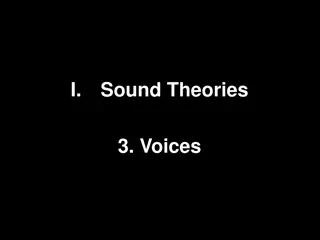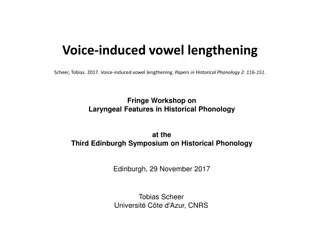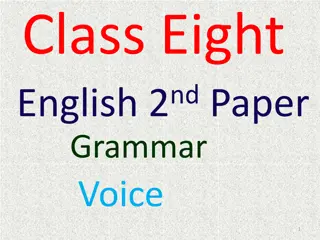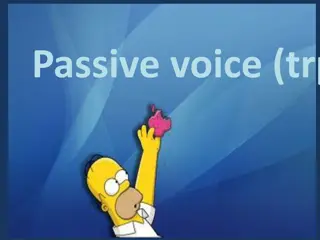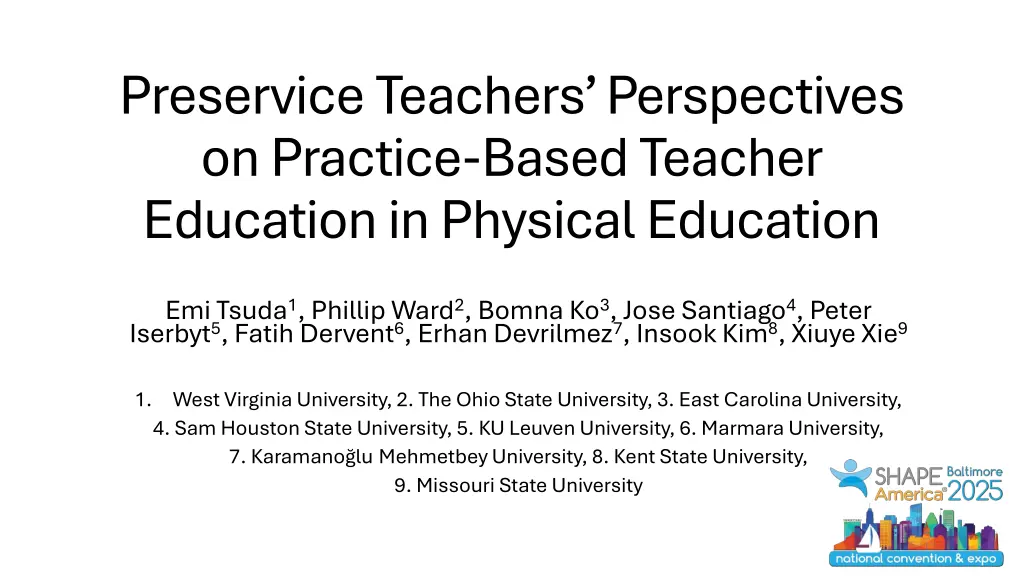
Perspectives on Practice-Based Teacher Education in Physical Education
Explore preservice teachers' perspectives on practice-based teacher education in physical education, focusing on teaching rehearsals and repeated teaching. Understand how PSTs perceive these pedagogies in their teaching practice within PETE programs.
Download Presentation

Please find below an Image/Link to download the presentation.
The content on the website is provided AS IS for your information and personal use only. It may not be sold, licensed, or shared on other websites without obtaining consent from the author. If you encounter any issues during the download, it is possible that the publisher has removed the file from their server.
You are allowed to download the files provided on this website for personal or commercial use, subject to the condition that they are used lawfully. All files are the property of their respective owners.
The content on the website is provided AS IS for your information and personal use only. It may not be sold, licensed, or shared on other websites without obtaining consent from the author.
E N D
Presentation Transcript
Preservice Teachers Perspectives on Practice-Based Teacher Education in Physical Education Emi Tsuda1, Phillip Ward2, BomnaKo3, Jose Santiago4, Peter Iserbyt5, Fatih Dervent6, Erhan Devrilmez7, InsookKim8, XiuyeXie9 1. West Virginia University, 2. The Ohio State University, 3. East Carolina University, 4. Sam Houston State University, 5. KU Leuven University, 6. Marmara University, 7. Karamano lu MehmetbeyUniversity, 8. Kent State University, 9. Missouri State University
Two Long Standing Issues in Teacher Education Reality Shock Theory-Practice Gap A theory being learned is not relevant and not being used to inform teaching practices (Ward et al., 2023). PSTs feel unprepared for the realities of the teaching profession (Farrell, 2016; Faeery & Westerlund, 2023; Korthagen, 210). Leads to the early departure of teachers from teaching (Ferrell, 2016; Ferry & Westerlund, 2023; Korthagen, 2010).
Practice Based Teacher Education (PBTE) Highlights the importance of practicing importance of practicing for learning rather than talking about practice (Peercy & Troyan, 2017). PSTs are asked to make decisions and execute pedagogical strategies within a specific context which helps them connect theory and practice (Von Esch & Kavanagh, 2018). Emphasize acquiring skills in well practices and pedagogies practices and pedagogies rather than the length of time spent in the field (Forzani, 2014). a specific context, well- -specific specific
Macro and Micro Level of PBTE Macro Level Macro Level Micro Level Micro Level Relevancy of knowledge Relevancy of knowledge e.g., an increasing number of method classes and field experiences. Pedagogical Changes and Pedagogical Changes and Planning Planning e.g., Repeated teaching, teaching rehearsals, core practices, teaching adaptations, scripted lesson plans in method and content classes.
Literature on PBTE in Physical Education Teacher educators Teacher educators reported that PBTE was a crucial approach to helping PSTs acquire adaptive competence and decision-making abilities (Ward et al., 2023). Teaching rehearsals, repeated teaching, teaching modeling, reflection, and teaching scenarios were useful strategies for developing adaptive competence developing adaptive competence (Cho, Tsuda,& Ward, 2024; Cho, Tsuda, Ward,&Chey, 2024; Xie, Ward, Oh, et al., 2021; Xie, Ward, Chey, et al., 2021; Xie et al., 2023) No existing studies on PSTs perspectives on PBTE.
Purpose Explore PSTs perspectives on two PBTE pedagogies: teaching rehearsals and repeated teaching. RQ1. RQ1. How did PSTs perceive their experiences in teaching rehearsals and repeated teaching in their practice of teaching in PETE programs? RQ2. RQ2. How did PSTs perceive teaching rehearsals and repeated teaching in their teaching practices in physical education?
Teaching Rehearsals and Repeated Teaching Two commonly used PBTE pedagogies. First step to provide evidence on PSTs perspectives on PBTE. Teaching Rehearsals Teaching Rehearsals Executed in the context of peer teaching. Provides PSTs with experiences of being a teacher and a student. Repeated Teaching Repeated Teaching Teach the same lesson more than once. Helps PSTs understand the nuances of a lesson.
Method Research design Research design: Multiple case study design (Creswell, 2013). Participants Participants: 38 PSTs in a teaching method course or student teaching from 8 PETE programs in Belgium (n = 1), T rkiye (n = 2), and the U.S. (n = 5). Female, n = 20, male n = 18; Sophomore n = 7; junior n = 12; senior n = 19 Belgium (n = 6) US (n = 24) T rkiye (n = 8)
Method Data source: Semi-structured interviews. 13 questions, approximately 30 minutes. Ethical considerations: No impact on grades or relationships with faculty. Data analysis: Thematic analysis (Braun & Clarke, 2012). Trustworthiness: Triangulation, member checking, and peer debriefing.
Program Profiles Universities Universities BG1 BG1 TK1 TK1 TK2 TK2 US1 US1 US2 US2 US3 US3 US4 US4 US5 US5 Country Country Program size Program size (appx.) (appx.) Belgium T rkiye T rkiye U.S. U.S. U.S. U.S. U.S. 25 40 40 50 25-30 60 50 50-60 Certification Certification 10-12 5-12 5-12 PK-12 K-12 PreK-12 PreK-12 PreK-Adult 16hrs (6hr- elementary, 6-hr- secondary, 4hr-adapted PE) 15 wks in one school either elementary or secondary 3 semester long field experiences 2 partial semesters Required Required early field early field experience experience hours hours 32 0 0 180 80 hrs 125 hrs 14 wks (7 wks in elementary and 7 wks in secondary) Required Required student student teaching teaching hours hours 16 wks (9 wks in elementary and 8 wks secondary) 14 wks (7 wks in elementary and 7 wks in secondary) 14 wks (7 wks in elementary and 7 wks in secondary) 28 wks/6 hours 28 wks/6 hours 84 hours
Theme 1: Improved Practices in Classroom Management Improvements in time management (n = 10), rules and routines (n = 8), grouping and organization (n = 8), and transition between tasks (n = 7). time management (n = 11), equipment I think, doing the same lesson, we re able to prepare ahead like we know how it went last time for the managerial side In the second lesson, it kind of made things run smoother. (US3_3F[J])
Theme 2: Improved Effectiveness in Providing Instructions Improvements in providing feedback (n = 30), demonstration (n = 15), verbal instruction (n = 16), and planning (n = 8). Redoing the lesson over and over again I learned more with handball as well. So, I was able to give better, specific feedback Also, I feel like you knew more about what to look for as well. (US4_3M[J])
Theme 3: Enhanced Content Knowledge Improvements in adapting and modifying tasks to meet students needs (n = 22), create better task progressions (n = 19), and improve their content knowledge in general (n = 8), as they taught the same lessons multiple times. In the beginning, there were mistakes, such as moving on to another task without teaching properly When I moved on to the games, the students played a match without knowing how to pass, and could not play. [I learned that] Teaching everything in order, in small steps, helped them [students] understand better. (TK1_2M[S])
Theme 4: Learning from Peers Observation of peers (n = 11) and feedback from peers (n = 2) were beneficial for their improvement in teaching. Not only teaching myself but also being taught by fellow students and hearing their feedback helped me a lot. (US1_1M[S.N.])
Theme 5: Perspectives Toward Teaching Rehearsals and Repeated Teaching Confidence and comfort in teaching improved (n = 30), and positive perspectives on repeated teaching (n = 29) and teaching rehearsals (n = 16). It s just simple practice that makes perfect Especially the more you practice it with A-plus effort and the more it becomes easier, the less nervous you become, the more smooth the transitions go (US5_1_M[S])
Discussion Importance of Systematic Opportunities to Reflect and Apply PSTs ability to reflect on their own instruction and use effective teaching strategies demonstrated that they had a strong theoretical understanding of what was appropriate. The efficacy of PBTE in filling the theory practice gap by engaging PSTs in systematic opportunities to reflect and apply theory in practice (Peercy & Troyan, 2017).
Discussion Developing Adaptive Expertise Teaching the same lesson more than once allowed PSTs to focus less attention on task execution and management and more on students performance and engagement (adapt a lesson to meet students needs). Adaptive Expertise Adaptive Expertise Ability to effectively address challenges during instruction rather than relying on routine expertise. (Kavanagh et a.., 2020)
Limitations Though this study was conducted internationally, the majority of participants were recruited from PETE programs in the U.S Each interview lasted approximately 30 min. Our PST results may be subject to social desirability bias, where participants responded in ways they believed would be viewed favorably
Conclusion PSTs found that PBTE pedagogies of teaching rehearsals and repeated teaching help them improve their teaching competence and confidence regardless of the contexts. The importance of deliberate practice and reflection (Ward et al., 2023). Building a body of knowledge that applies to other teaching contexts is crucial to addressing two long-standing challenges in teacher education programs: reality shock and the theory-practice gap.
Thank you! Emi Tsuda: emi.Tsuda@mail.wvu.edu Phillip Ward: ward.116@osu.edu Bomna Ko: KOB@ecu.edu Jose Santiago: jas083@SHSU.EDU Peter Iserbyt: peter.iserbyt@kuleuven.be Fatih Dervent: fatih.dervent@marmara.edu.tr Erhan Devrilmez: erhandevrilmez@gmail.com Insook Kim: ikim2@kent.edu Xiuye Xie: XiuyeXie@MissouriState.edu

